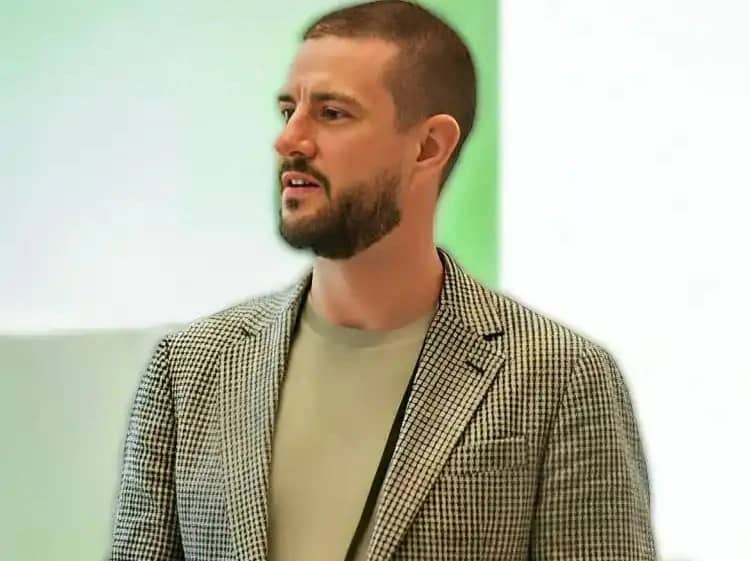订阅 wiki
Share wiki
Bookmark
Tomasz Stańczak
0%
Tomasz Stańczak
Tomasz Stańczak 是一位软件工程师、企业家,也是 区块链 开发领域的知名人物,以 以太坊 基础设施公司 Nethermind 和去中心化金融项目 Oiler Network 的创始人身份而闻名。Stańczak 此前曾担任 以太坊基金会 的联合执行董事。 [1] [8] [11]
教育背景
Stańczak 于 2009 年毕业于亚当·密茨凯维奇大学(Adam Mickiewicz University),获得信息技术硕士学位。 [9]
职业生涯
早期职业生涯
Stańczak 的职业生涯始于 2007 年,在 Comarch SA 担任软件开发人员,负责该公司 ERP 平台的扩展和核心组件。2009 年至 2011 年,他在 itelligence/Cirquent 工作,参与 MunichRe 项目并维护用于承保和保费计算的应用程序。2011 年,他加入 CME Group/Elysian Systems,支持用于商品期货的 CME Direct 交易平台的开发。
2011 年至 2016 年间,Stańczak 在伦敦花旗银行(Citi)工作,从初级程序员分析师晋升为外汇电子交易技术副总裁。他的职责包括构建交易应用程序框架、开发定价和风险平台、管理团队以及与前台交易部门合作。2016 年,他加入 Rokos Capital Management 担任软件开发人员,任职至 2017 年年中。
区块链创业
2017 年,他在伦敦创立了 Nethermind,这是一家专注于 以太坊 基础设施及相关开发的科技公司。随后,他在 2020 年创立了 Oiler Network。
领导与顾问角色
Stańczak 参与了多个区块链项目,包括担任 Forta Foundation 理事会成员、Starknet Foundation 董事会成员,以及 Flashbots 的参与者。
2022 年,他加入 Twinstake 担任首席执行官,任职至 2024 年,之后担任董事会主席直至 2025 年。在同一时期,他继续在 Nethermind 工作,同时在更广泛的 区块链 生态系统中保持顾问和治理角色。 [10]
2025 年初,Stańczak 担任 以太坊基金会 的联合执行董事,与 Hsiao-Wei Wang 共同分担该职位。2026 年 2 月 13 日,他宣布将于月底卸任。Bastian Aue 被任命为他的继任者。Stańczak 表示,他计划通过“直接与前沿科技和以太坊领域的创始人合作”,继续在生态系统中保持活跃。 [11] [12]
访谈
以太坊基金会
在 2025 年 7 月庆祝 以太坊 成立 10 周年的 Unchained 播客采访中,Stańczak 讨论了该组织对技术问题的关注,而非 以太币 的价格。他强调,基金会避免参与有关 以太币 价格的讨论,除非是在考虑国库管理时。Stańczak 强调了 以太坊 面临的重要挑战,特别是互操作性,并概述了基金会的短期目标,包括扩展 Layer 1、改善用户体验和支持技术创新。在承认 以太坊 经济复杂性的同时,他强调了维护安全和去中心化核心价值的重要性。此外,Stańczak 指出,基金会需要充当 以太坊 生态系统内的连接器,促进各利益相关者之间的沟通,并重申基金会致力于支持开发者和解决社区关注的问题,而不直接参与价格投机。 [3]
$widget0 $widget0
$$$$
以太坊视角放大
在 2025 年 7 月的 Clear Crypto 播客中,主持人 Nathan 和 Gareth 欢迎了 以太坊基金会 联合执行董事兼 Nethermind(以太坊 网络关键执行客户端)创始人 Stańczak。Stańczak 讨论了 以太坊 作为一个去中心化“世界计算机”的概念,它使参与者能够以去信任的方式验证计算,从而促进从金融市场到自动化系统的各种应用。他分享了自己进入 区块链 领域的历程,该历程始于十年前伦敦的一次聚会,并详细阐述了 以太坊 对传统金融行业的变革潜力。对话还涉及了 以太坊 正在进行的升级,特别是从 工作量证明 到 权益证明 共识机制 的转变,以及 以太坊基金会 在协调去中心化网络内的开发和升级方面的关键作用。 [2]
$widget0 $widget0
$$$$
演讲演示
以太坊愿景
在 2025 年 6 月的 EthCC 上,Stańczak 发表了关于 以太坊 愿景的演讲。他承认了包括 Vitalik Buterin 在内的社区在塑造这一愿景方面的重大贡献,他认为执行这一愿景是他的责任。Stańczak 对会场和与会者表示感谢,强调了在受 AI 影响且快速发展的技术格局中,沟通和可见性对于推广 以太坊 的开源、隐私和安全价值观的重要性。他强调了 以太坊 的关键目标,包括增强协议弹性、改善用户体验以及探索 AI 和 现实世界资产 的整合。Stańczak 强调需要跨不同社区进行协作,以促进隐私和机构采用,同时确保 以太坊 仍然是一个在自动化程度不断提高的情况下优先考虑并保护人类能动性的平台。他讨论了正在进行的计划、安全项目以及基金会在未来几年与开发者和全球社区互动以推进 以太坊 目标的战略。 [4]
$widget0 $widget0
$$$$
以太坊应用
在 2025 年 6 月 DAPPCON 的一次演讲中,Stańczak 讨论了他使用 以太坊 应用程序的经验,强调了该平台用户体验的优缺点。他指出,虽然 稳定币 已成为 以太坊 的一个重要应用,但整体用户体验仍然充满挑战,特别是在入门引导和隐私方面。Stańczak 分享了他尝试设置钱包和转移资金的经历,这些过程经常受到令人沮丧的用户界面、个人信息要求和技术障碍的阻碍。他反思了监管压力如何影响隐私和易用性,并指出许多用户(特别是新手)面临着巨大的障碍,这些障碍削弱了 以太坊 应用程序的潜在益处。通过他的探索,他旨在揭示 以太坊 社区内的这些问题,强调改进各种应用程序用户体验的必要性。 [7]
$widget0 $widget0
$$$$
扩展以太坊
来自 Nethermind 的 Stańczak 在 2024 年 10 月的新加坡 Pragma 上发表了演讲,重点关注矿工可提取价值 (MEV) 及其对扩展 以太坊 的影响。他讨论了 MEV 如何推动 Layer 1 (L1) 性能的创新,因为搜索者和 套利 交易者寻求更快的交易执行方法。这种竞争激励执行客户端实施者增强其系统,最终使 验证者 和质押者受益。Stańczak 强调了即将到来的 以太坊 路线图和改进,包括更高数据可用性和更快区块模拟时间的潜力。他指出了 MEV 对 Layer 2 (L2) 去中心化、验证者 行为以及抗审查系统设计的影响。此外,他还讨论了区块生产中心化带来的挑战,并强调了持续研究以解决 以太坊 生态系统中这些问题的重要性。 [5]
$widget0 $widget0
$$$$
Starknet
在 2024 年 8 月由 Stańczak 主持的 StarknetCC 演讲中,探讨了 Starknet 生态系统内的矿工可提取价值 (MEV) 概念,强调了开发者提高意识和理解的必要性。Stańczak 将 MEV 解释为特权参与者(特别是排序器)提取的一种潜在利润,他们可能会利用交易排序。他将 MEV 分为抢跑(front-running)、尾随(back-running)和夹心攻击(sandwiching),阐明了这些做法如何对用户产生不利或有利的影响。对话强调了旨在减轻恶意 MEV 的持续举措,同时促进开发者对交易排序的更深理解,特别是在 去中心化金融 (DeFi) 在 Starknet 上增长的时期。会议呼吁社区内进行协作,创建可以增强整个生态系统的工具和内容,应对与活动增加相关的潜在 MEV 风险,并促进市场机会的更精简整合。 [6]
$widget0 $widget0
$$$$
发现错误了吗?
